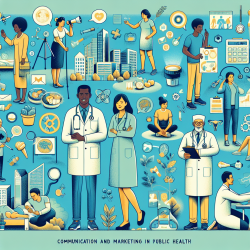Introduction
In the realm of medical education, particularly in anesthesia training, formative feedback plays a pivotal role in shaping the competencies and professional identities of residents. The study titled "An interpretive phenomenological analysis of formative feedback in anesthesia training: the residents’ perspective" provides valuable insights into how feedback is perceived by residents and its impact on their learning journey.
Understanding the Study
The research employed interpretive phenomenological analysis to delve into the experiences of 14 anesthesia residents with feedback in clinical settings. The study aimed to understand the value residents place on feedback, their experiences, and how feedback influences their professional development. The analysis was conducted in a teaching hospital adapting to new practices aligned with nationally mandated clinical competencies.
Key Findings
The study revealed that residents value feedback that is consistent, effortful, and provides actionable advice. High-quality feedback, whether formal or informal, was deemed essential for their professional growth. Residents highlighted that the most impactful feedback was often informal, while formal evaluations sometimes lacked the depth needed for meaningful development.
Implementing the Findings
Practitioners can enhance their skills by integrating the following insights from the study:
- Consistency and Effort: Ensure that feedback is consistent and demonstrates an understanding of the resident's thought processes. This requires effort and engagement from the practitioner.
- Actionable Advice: Provide feedback that is not only evaluative but also offers clear, actionable steps for improvement. This helps residents understand how to enhance their skills effectively.
- Informal Feedback: Recognize the value of informal feedback sessions, which can often be more impactful than formal evaluations. These sessions allow for more personalized and immediate feedback.
- Faculty Development: Invest in training faculty members to improve their feedback and evaluation skills. This can lead to more effective and meaningful feedback loops.
Encouraging Further Research
The study opens avenues for further research into the nuances of feedback in medical education. Practitioners are encouraged to explore how different feedback mechanisms can be optimized to support resident learning and professional growth. Understanding the residents' perspective can lead to more tailored and effective feedback strategies.
Conclusion
Formative feedback is a cornerstone of medical education, particularly in anesthesia training. By implementing the findings from this study, practitioners can enhance their feedback skills, ultimately benefiting the residents' learning experience and professional development. For those interested in delving deeper into the research, the original study offers a comprehensive analysis of residents' perspectives on feedback.
To read the original research paper, please follow this link: An interpretive phenomenological analysis of formative feedback in anesthesia training: the residents’ perspective.










